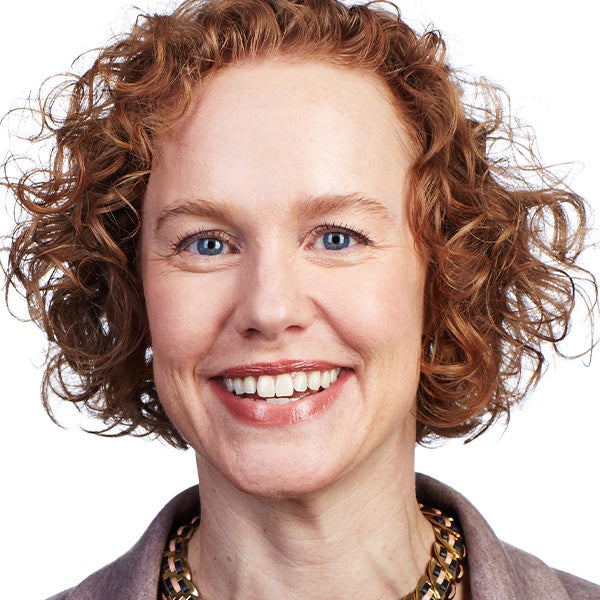The Ken Kennedy Institute's September Member of the Month: Kirsten Ostherr, Gladys Louise Fox Professor of English; Director, Medical Humanities Program; Director, Medical Humanities Research Institute.
Kirsten Ostherr, Ph.D., MPH is a media scholar, health researcher, and technology analyst at Rice University in Houston, TX. Dr. Ostherr has ongoing projects on trust and privacy in digital health and artificial intelligence; simulation as a mediator between human and technological forms of medical expertise; and human centered design as a technique for patient collaboration in health technology development.
How would you explain your research in 1-2 sentences?
My research looks at the ways that digital health technologies intersect with human culture to shape our experience and interpretation of illness, and I focus especially on the unequal distribution of benefits and harms across society.
How does your work impact the community at large?
I try to look at digital health technologies from the “bottom up,” so to speak. That is, I try to take the perspective of patients and members of minoritized communities, and in this way, I am able to ask whether new computational approaches to care might have unintended consequences that further increase health disparities.
What kind of collaborations are you looking for at Rice and within the community?
I would like to work more with computer scientists and other engineers who are interested in asking questions about the societal effects of their work at the beginning, rather than at the end of the design and development process. By doing so, we might anticipate and avoid some of the problems that occur when we don’t design for a truly diverse user base. I already collaborate with a lot of doctors, but I would also like to collaborate with more nurses, the real frontline workers of healthcare – they see everything and are much closer to the patient’s lived experience.
How do you see computation and data advancing in the future?
The question of data privacy protections must be addressed, and soon, so that we can move away from tech that is revealed to be unethical and exploitative after it is already released into the world, and instead work toward building relationships of trust among data “donors,” technology developers, and different application sectors. In healthcare, many doctors and nurses would like to integrate tools like AI/ML into care, but they need to be able to trust the companies that create these tools, and they need to see true benefits to patient health outcomes. The voices of patients who are members of communities that have experienced racism, sexism, and other forms of discrimination need to be part of the discussion about what trust looks like in this environment.
How do you see the Ken Kennedy Institute supporting you and/or your research?
The Ken Kennedy Institute has brought me into a network of people who are interested in crossing the boundaries between the work they do in computer and data science and the work that I do in Medical Humanities. I gave a talk at the AI in Health Conference last year about racial health disparities and AI, and that was a great opportunity to be in dialogue with people who have shared interests, but use different methods and backgrounds for addressing problems. I hope to further develop my connections with members of the Institute through collaborative research projects. As the founding Director of the newly created Medical Humanities Research Institute at Rice, I look to the Ken Kennedy Institute for guidance and partnership and I am excited to strengthen those bonds.
What is your favorite book or movie?
One of my all-time favorite books is Giovanni’s Room by James Baldwin. He is a towering figure in 20th century American literature and the emotional intensity and beauty of the prose leaves a lasting impression. My favorite movie is probably In the Mood for Love, directed by Wong Kar-Wai. It is a gorgeously filmed story, set in Hong Kong, about love and loss and the visual pleasure of the spectacle is mesmerizing.
Do you have any words of inspiration you would like to share?
Real creativity can transform the world, but we must be willing to take risks and move outside of our habitual practices and narrow disciplines to bring these possibilities to fruition. The National Academies published a report a few years ago called “Branches from the Same Tree” that argued for the re-integration of the STEM fields with the Humanities and the Arts, and as a small, high caliber institution, Rice is the perfect place to take this mandate seriously. Radically cross-disciplinary collaboration can change the world, and also, it can be really fun!
_
See Kirsten's Rice Profile here.

